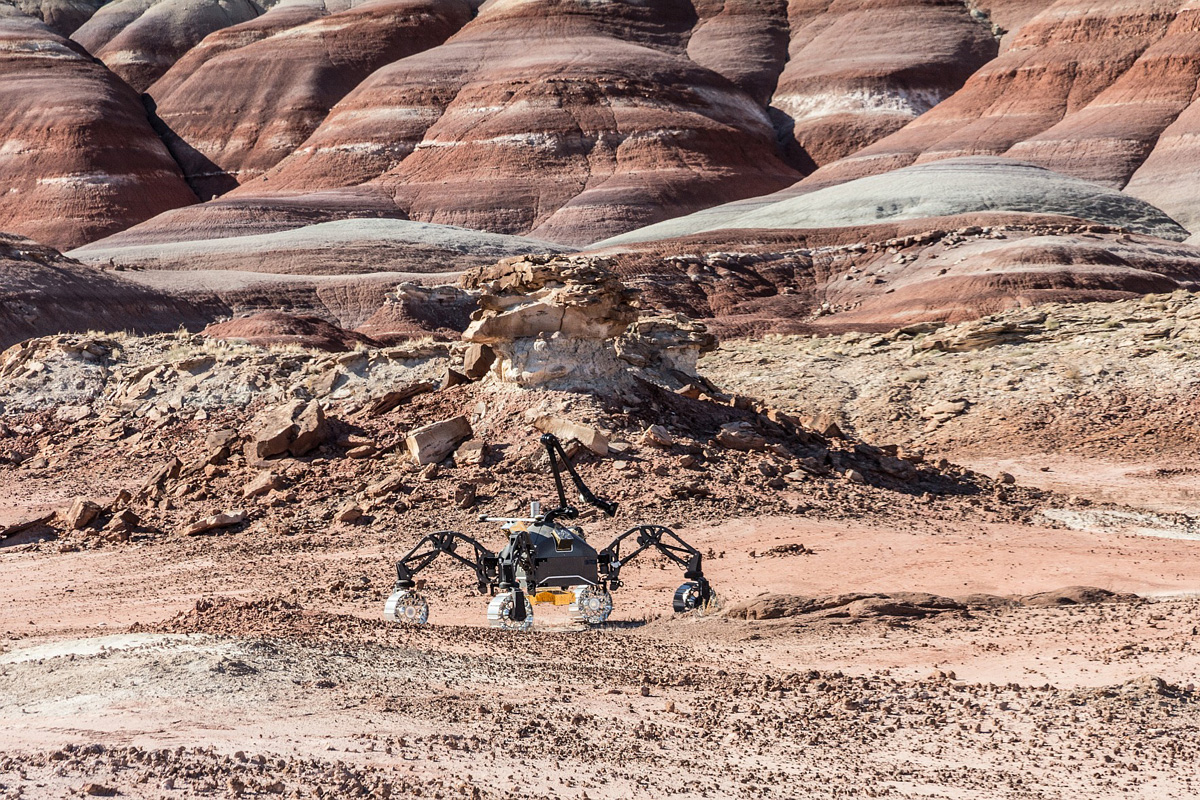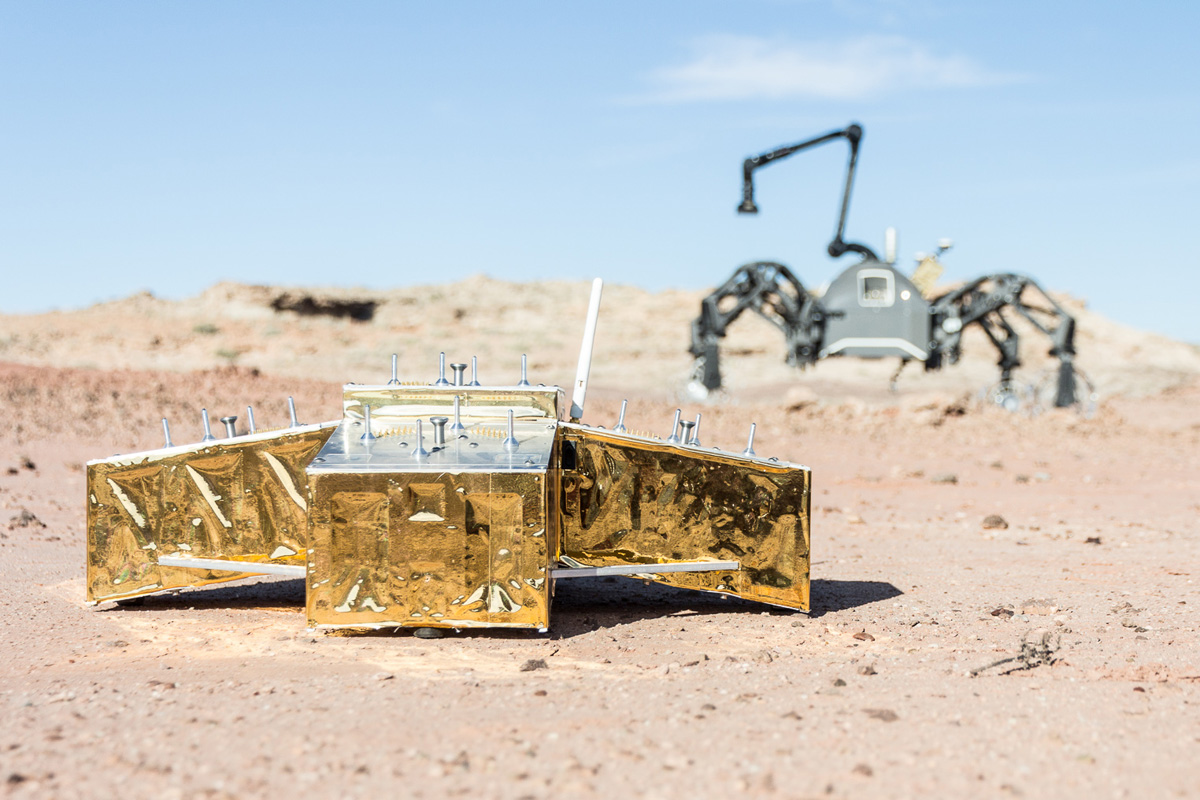FT-Utah
Field Trials Utah with the TransTerrA System


The project FT-Utah deals with the evaluation of robotic systems to be used in the field of planetary exploration. An extensive test campaign with a duration of four weeks was conducted in October/November 2016 within the desert of Utah, USA. The robotic systems were put under test within natural and unstructured Mars analogue terrain and remotely operated from a control station in 8300 km distance in Bremen, Germany.
| Duration: | 01.06.2016 till 31.03.2017 |
| Donee: | German Research Center for Artificial Intelligence GmbH & University of Bremen |
| Sponsor: |
Federal Ministry for Economic Affairs and Climate Action
German Aerospace Center e.V. |
| Grant number: | This project is funded by the German Space Agency (DLR Agentur) with federal funds of the Federal Ministry for Economic Affairs and Climate Action (BMWi) in accordance with the parliamentary resolution of the German Parliament, grant no. 50 RA 1621 and 50RA1622 (University of Bremen). |
| Website: | https://twitter.com/ft_utah |
| Application Field: | Space Robotics |
| Related Projects: |
TransTerrA
Semi-autonomous cooperative exploration of planetary surfaces including the installation of a logistic chain as well as consideration of the terrestrial applicability of individual aspects
(05.2013-
12.2017)
|
| Related Software: |
NDLCom
Node Level Data Link Communication
|
Project details

- SherpaTT: A hybrid walking and driving rover with an active suspension system
- Coyote III: A micro rover for the use in unstructured terrain
- BaseCamp and Payload-Items: Modular junction station and payload container
- Mobile mission control station at site
- Ground control station including an exoskeleton located in Bremen, Germany for long distance mission control
The field trial campaign was based on a system evaluation on three layers: (i) single system tests concerning locomotion capabilities, (ii) single system tests concerning autonomy and (iii) full system test in a simulated mission scenario. The primary focus was on the execution of the semi-autonomous mission sequence, including all robotic systems as listed above.
With the conduction of the field trial, a successful demonstration of a semi-autonomous cooperative exploration of planetary surfaces was conducted. This includes the installation of a logistics chain, within the context of a sample return mission.
In the case of the demonstrated mission sequence, SherpaTT acted as an exploration and sample acquisition rover. Coyote III took the role of a shuttle system, which is collecting the sample containers and transporting them back to the sample return stage. The mission command and control was based in a ground control station located in Bremen, Germany, using a satellite link for communication with the Utah site. The ground control station is equipped with a virtual reality lab for visualizing the mission progress. In order to control the multi robot mission, an exoskeleton is used by the operator for direct control of the systems.
Apart from the demonstration and evaluation of a full mission sequence, performance parameters of the different single robotic systems were tested within the Mars analogue terrain. Furthermore, different aspects of autonomous exploration tasks could be evaluated on single system level, as well as within multi-robot tests.
The results of the field trials will be used within the project TransTerrA as well, in order to further evaluate extraterrestrial exploration and to study a potential technology transfer for terrestrial applications.
Videos
SherpaTT: Driving in natural Mars analogue terrain in the desert of Utah, US

SherpaTT driving in natural Mars analogue terrain in the desert of Utah, USA and demonstrating its ability to keep its body level during drives through rough terrain.
Field Trials Utah: Robot team simulates Mars mission in Utah

A barren, rocky desert landscape and not a single soul around – to come as close as possible to the inhospitable conditions on the Red Planet, scientists of the Robotics Innovation Center of the German Research Center for Artificial Intelligence (DFKI) tested the cooperation of various robot systems in the desert of the American state of Utah from 24 October to 18 November 2016.
SherpaTT during outdoor runs

SherpaTT demonstrating its ability to keep ist body level during drives through rough terrain.





